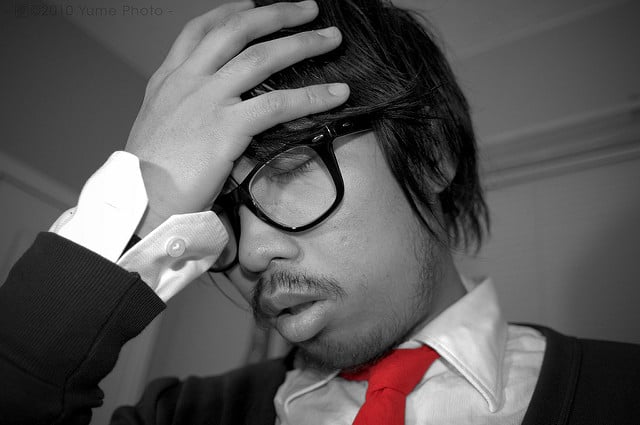Am I dumber because of using Facebook?
Not only does clickbait telling me which Star Wars character best represents each US state1 fail to expand my intellectual horizons, but social media potentially makes me dumber in that I end up seeing the views of people who think like I think. I thus start believing that my way is the way.
Facebook users, myself included, tend to like and share content with messages that we already accept. Then, through the magic of the Facebook algorithm,2 we are exposed to additional content with which we already agree.
Cass Sunstein in “How Facebook Makes Us Dumber” explains the dumbening effects of this group polarization. After giving examples such as whether you think Donald Trump would be a fine president or what your thoughts of the Affordable Care Act/Obamacare3 are, he explains:
Arriving at these judgments on your own, you might well hold them tentatively and with a fair degree of humility. But after you learn that a lot of people agree with you, you are likely to end up with much greater certainty — and perhaps real disdain for people who do not see things as you do.
I have very strong opinions on these and other hot-button issues. While that does not necessarily make my views wrong, I see how I have formed such opinions mostly by hearing the views of people who think similarly — and by not seriously listening to divergent opinions.
In a fantastic article on this issue, “The ‘Other Side’ Is Not Dumb,” Sean Blanda writes that only seeing and sharing content with which we already agree is:
… a fundamental rejection of the possibility to consider that the people who don’t feel the same way you do might be right. It’s a preference to see the Other Side as a cardboard cut out, and not the complicated individual human beings that they actually are.4
So, what is to be done? How can I be less dumb?
Blanda argues that we cannot make progress without understanding people who aren’t like us and respecting their positions — even if we disagree.5 He offers some advice for the next time you’re talking with someone who sees things differently:
Don’t try to “win.” Don’t try to “convince” anyone of your viewpoint. Don’t score points by mocking them to your peers. Instead try to “lose.” Hear them out. Ask them to convince you and mean it.
Blanda also poses some helpful questions for when we’re thinking of sharing something on Facebook
Is it because that link brings to light information you hadn’t considered? Or does it confirm your world view, reminding your circle of intellectual teammates that you’re not on the Other Side?
***
While the internet can foster the worst forms of echo chambers, one can also use it to hear the views of others and become less dumb.
In a recent column, Thomas Friedman highlights the experience of Wael Ghonim, who helped start the 2011 Tahrir Square revolution in Egypt through an anonymous Facebook page. Ghonim was then disheartened to see how social media was used to spread unfounded rumors and attack the other side. Social media did not create the vibrant democracy for which he had hoped.
Recently, Ghonim and some colleagues started Parlio.com, which is a forum for level-headed discussion on heated issues. Their website states:
We are trying to define a new type of network. One void of Internet-trolling, where we can create a community of trust and respect that expands our horizons. Parlio values dissent, but above all else, civility.
I have read a number of the discussions and Q&As on Parlio and find them to be fascinating. I will be going back often.
Another article from recent months shows that real listening and even conversion is possible on social media.
Adrian Chen’s “Unfollow” describes the experience of Megan Phelps-Roper, a former member of the Westboro Baptist Church. Westboro is most known for picketing the funerals of gay men who died of AIDS and U.S. soldiers, oftentimes with church members holding up signs like “GOD HATES FAGS” and “THANK GOD FOR DEAD SOLDIERS.”
Megan Phelps-Roper pioneered the spread of such messages on Twitter, but it was also through Twitter that Phelps-Roper encountered the humanity of some of those she initially attacked with 140-character bombs. And seeing their humanity was the turning point. It is an incredible story of conversion.
While social media may be used to help us step out of the echo chamber it has helped to create, it can’t be the only solution. There’s no better way to see the humanity of people with whom we disagree than by actually talking with them in person.
Blanda describes the game of “Controversial Opinion” that he plays with trusted friends. People are encouraged to share a controversial conviction of theirs. Then, others can ask questions about why they believe what they do, but no one is allowed to argue or talk about what was shared afterwards. I am intimidated but intrigued by this idea.
Finally, Kaddie Abdul gives an inspiring witness of listening to “The Other.” In “I went to a Trump rally in my hijab. His supporters aren’t just racist caricatures,” she explains why, as a practicing Muslim, she wanted to attend a Donald Trump rally:
I attended Sunday’s rally with the intention to educate myself and, hopefully, to educate others. I didn’t go to shout at Trump’s supporters, no matter how passionately I feel about some of their claims. And it was interesting to hear Trump and his supporters’ viewpoints for more than just the few seconds offered by most soundbites.
Abdul explains how some have questioned her decision to attend the rally while wearing a headscarf and holding a large copy of the Qur’an. She explains:
But it was worth the risk to me to show them that their insecurities about Muslims were unfounded. It was worth it to humanize Muslims for them. And it was worth it, to me, to recognize their humanity, too.
Seriously considering the beliefs of others — and not simply those that reinforce my own — is challenging, especially on social media.6 Kaddie Abdul is a wise woman. By following her lead of listening to different experiences, I hope to be a little less dumb.
—
The cover image is from Flickr user Christian Bucad.
- Seriously, I want the 2 minutes that I wasted on this back. ↩
- For a fascinating and hilarious look at how all those likes affect what you see in your feed, check out “I Liked Everything I Saw on Facebook for Two Days. Here’s What It Did to Me.” ↩
- Even the terms we use are charged and tend to broadcast our beliefs. ↩
- See this article from the ever-wise Onion: “Conservative Acquaintance Annoyingly Not Racist” ↩
- The “best buddy” relationship between Justices Scalia and Ginsburg is a particularly inspiring example of this. Conservative columnist David Brooks’s touching column about he will miss Barack Obama, a man with whom he often disagrees on the level of policy, is also noteworthy. ↩
- That being said, how did I hear about Kaddie Abdul? Facebook of course. ↩


